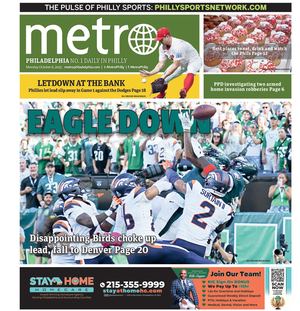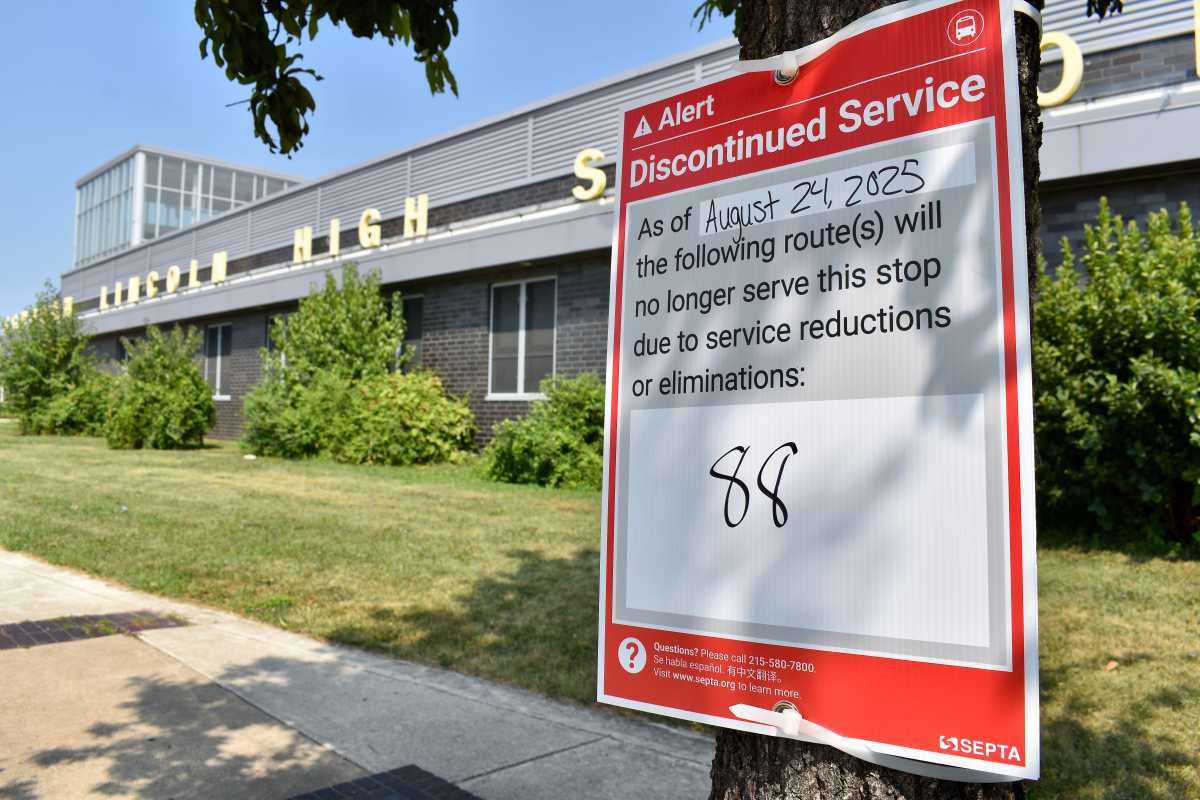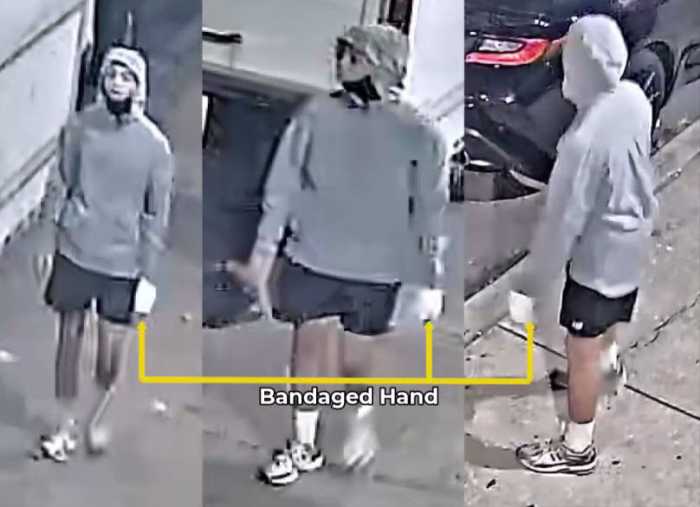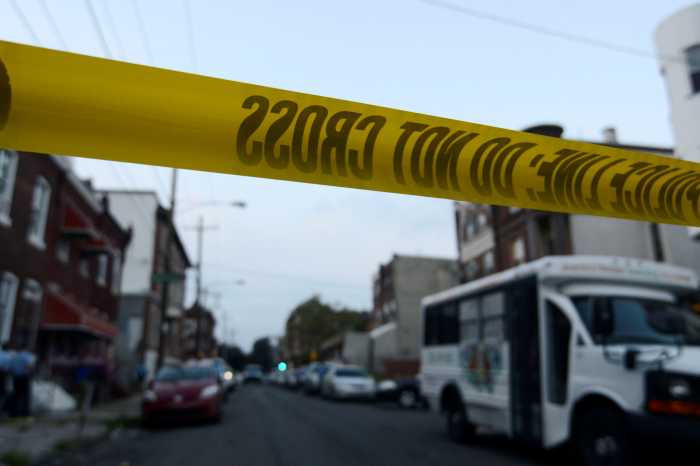Signs tied to trees outside Abraham Lincoln High School in Mayfair inform riders that SEPTA’s Route 88 will be discontinued Aug. 24, one day before the city’s public school students return to class.
The route is one of 32 slated to be axed in less than three weeks as part of SEPTA’s initial round of cuts, intended to help account for a $213 million budget deficit.
Eight Democratic state representatives from Philadelphia gathered Monday outside Lincoln to call on senate GOP leaders to reconvene in Harrisburg and vote on a public transit funding measure that would avert the cuts.
The lawmakers took particular aim at Sen. Joe Picozzi, the only Republican senator representing the city. His district covers a large chunk of Northeast Philadelphia, including Lincoln.
“We’re holding this event at a school because Senator Picozzi’s own young constituents, his public school students, will be stranded without a way to get to the classroom if the service cuts are imposed,” Rep. Rick Krajewski said.
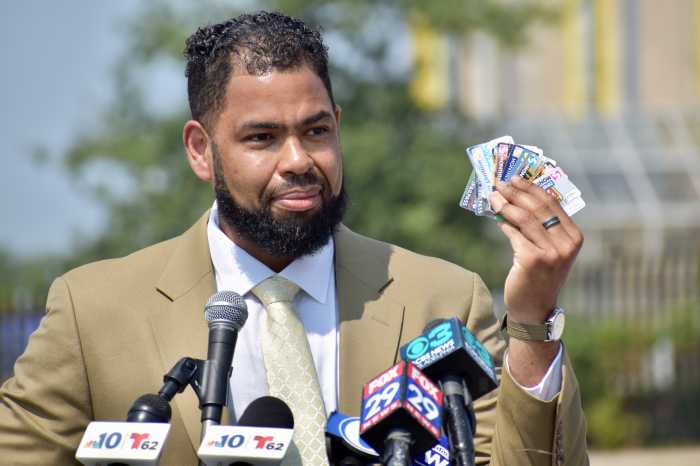
“From everything that I have been told, Senator Picozzi is a huge advocate of SEPTA and of mass transit,” added Rep. Ben Waxman. “But as far as I know, I have not seen Senator Picozzi call on his own leadership to bring a vote to the Senate floor on mass transit.”
Picozzi, in a statement Monday, said he has “been working to deliver crucial funding to keep our trains and buses running” since taking office in January.
The Democrat-controlled state House has passed transit funding legislation four times dating back to 2023. Most recently, in June, the body approved a proposal that would reconfigure the share of sales tax revenue dedicated to public transportation, generating an estimated $300 million more annually for agencies across Pennsylvania.
Though Gov. Josh Shapiro, a Democrat, has also pushed for additional transit money, the efforts have yet to gain the necessary support in the Senate, where Republicans hold a majority.
Barring any injection of funds, SEPTA intends to begin cancelling and shortening routes later this month. Frequencies would also be reduced on Regional Rail and subway lines.
On Sept. 1, the authority is planning to implement a 21.5% fare hike, raising the base bus, trolley and subway price from $2.50 to $2.90. Further cuts, including the elimination of five Regional Rail lines and another 18 bus routes, would follow Jan. 1.
Transit officials have said the fiscal gap stems from the expiration of federal COVID-19 money and rising costs.
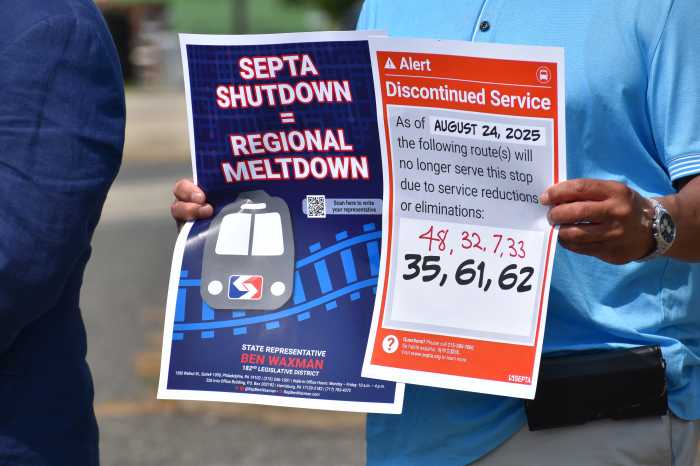
Picozzi said legislation he introduced two weeks ago “is laying the groundwork for a bipartisan deal to deliver the necessary funding for our public transit system.”
The trio of bills would, if enacted, institute additional reporting requirements for SEPTA; encourage the authority to pursue public-private partnerships; and establish minimum “performance criteria” for a number of metrics, including reducing fare evasion.
In a June memo to his colleagues, Picozzi characterized the legislative package as a “a new, bold vision to revolutionize SEPTA without further contributing to the state’s multi-billion dollar structural deficit.”
The measures are not tied to any dollar amount, and lawmakers at Monday’s briefing noted that SEPTA is already working on the issues outlined in the legislation.
“If transparency is something that you want, we are absolutely at the table to deliver that, but we also need the funding in order to talk about transparency,” Rep. Morgan Cephas said.
The transit debate is enmeshed in state budget negotiations, which are ongoing despite a June 30 deadline.
“Our state is faced with a structural deficit just like SEPTA,” Senate Majority Leader Joe Pittman, a key player in those talks, said Monday in a statement. “Along with the discussion of any additional dollars for mass transit, this reality necessitates meaningful reforms and accountability measures must be implemented to ensure the long-term success of mass transit.”
